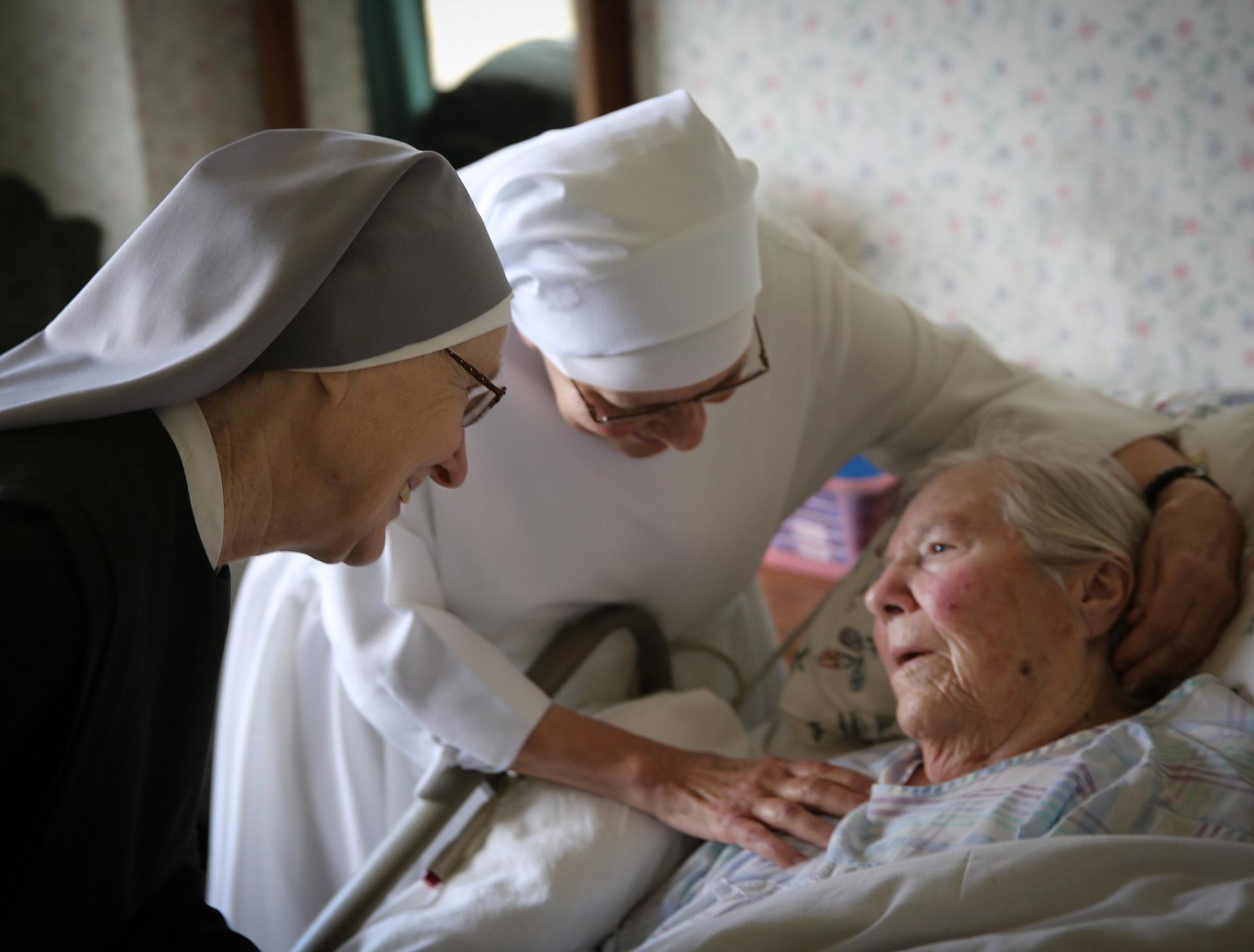ROME – After the “massacre of the elderly” due to the COVID-19 pandemic, the Vatican is calling for the world to re-think the way it cares for old people.
“In all continents, the pandemic has primarily affected those who are old,” said Italian Archbishop Vincenzo Paglia on Tuesday.
“The death tolls are brutal in their cruelty. To date, there is talk of more than two million and three hundred thousand elderly people who have died from COVID-19, the majority of whom were over 75,” he added, calling it a “real massacre of the elderly.”
Paglia, the president of the Pontifical Academy for Life, was speaking at a presentation of the document, Old age: our future. The elderly after the pandemic.
The majority of the elderly who died from the coronavirus, Paglia said, got infected in care institutions.
Data from some countries, including Italy, show that at least half of the elderly victims of COVID-19 lived in institutions and residential care homes.
Research by Tel Aviv University has highlighted the direct proportional relationship between the number of beds in nursing homes and the number of elderly deaths in Europe, Paglia said, noting that in every country studied, the higher the number of beds in nursing homes, the higher the number of elderly victims.
French Father Bruno-Marie Duffè, Secretary Dicastery for Promoting Integral Human Development, said the health emergency showed that those who no longer participate in the processes of economic production are no longer considered a priority.
In the context of the pandemic, he said, “they are taken care of after others, after the ‘productive’ people, even if they are more fragile.”
The priest said another consequence of not making the elderly a priority is shown by the “breaking of the link” between generations caused by the epidemic, with little to no solutions proposed thus far by those in decision-making.
The fact that children and young people cannot meet their elderly, Duffè said, leads to “real psychological disorders” for both young and old, who without being allowed to see one another, could “die of another virus: Grief.”
The document released on Tuesday argues that the elderly have a “prophetic role” and that setting them aside for “purely productive reasons, causes an incalculable impoverishment, an unforgivable loss of wisdom and humanity.”
“This vision is not an abstract utopian or naïve pretense,” the document says. “It can instead bring to life and nourish new and wiser public health policies and original proposals for a welfare system for the elderly. More effective, as well as more human.”
The model the Vatican is calling for requires an ethic prioritizing the public good, as well as the respect for the dignity of every person, without distinction.
“The whole of civil society, the Church and the different religious traditions, the world of culture, school, volunteering, entertainment, the manufacturing classes and classical and modern social communications, must feel the responsibility to suggest and support—in this Copernican revolution—new and targeted measures that make it possible for the elderly to remain in the homes they know and in any case in familiar environments that look more like a home than a hospital,” the document says.
The 10-page document notes that the pandemic has brought a double awareness: On the one hand, there’s an interdependence among all, and the other, many inequalities.
Picking up on Pope Francis’s analogy from March 2020, the document argues that the pandemic has shown that “we are all in the same boat,” though arguing that “We are all in the same storm, but it is increasingly evident that we are on different boats, and that the least seaworthy boats are sinking every day. It is essential to rethink the whole planet’s development model.”
The document calls for a reform of the health care system and urges families to try to comply with the wish of the elderly who request to stay in their homes, surrounded by loved ones and their own things whenever possible.
The document acknowledges that sometimes, the institutionalization of the elderly it is the only resource families have, and that there are many centers, both private and public, and even some run by the Catholic Church, that provide humane care. Yet, when they are proposed as the only possible solution to care for the vulnerable, this practice can also manifest a lack of concern towards the weak.
“Isolating the elderly is an obvious manifestation of what Pope Francis has called the ‘throwaway culture’,” the document says.
“The risks that afflict old age, like loneliness, disorientation and consequent confusion, loss of memory and identity, and cognitive decline, often appear even more clearly in these contexts, whereas instead the vocation of these institutions should be the family, social and spiritual accompaniment of the elderly, in full respect of their dignity, on a path often marked by suffering,” it continues.
The academy points out that the elimination of the elderly from the life of the family and society represents “the expression of a perverse process in which there is no longer gratuitousness, generosity, that wealth of feelings that make life not just a give and take, that is, not just a market.”
“Eliminating the elderly is a curse that this society of ours often brings down on itself,” it says.
Follow Inés San Martín on Twitter: @inesanma












